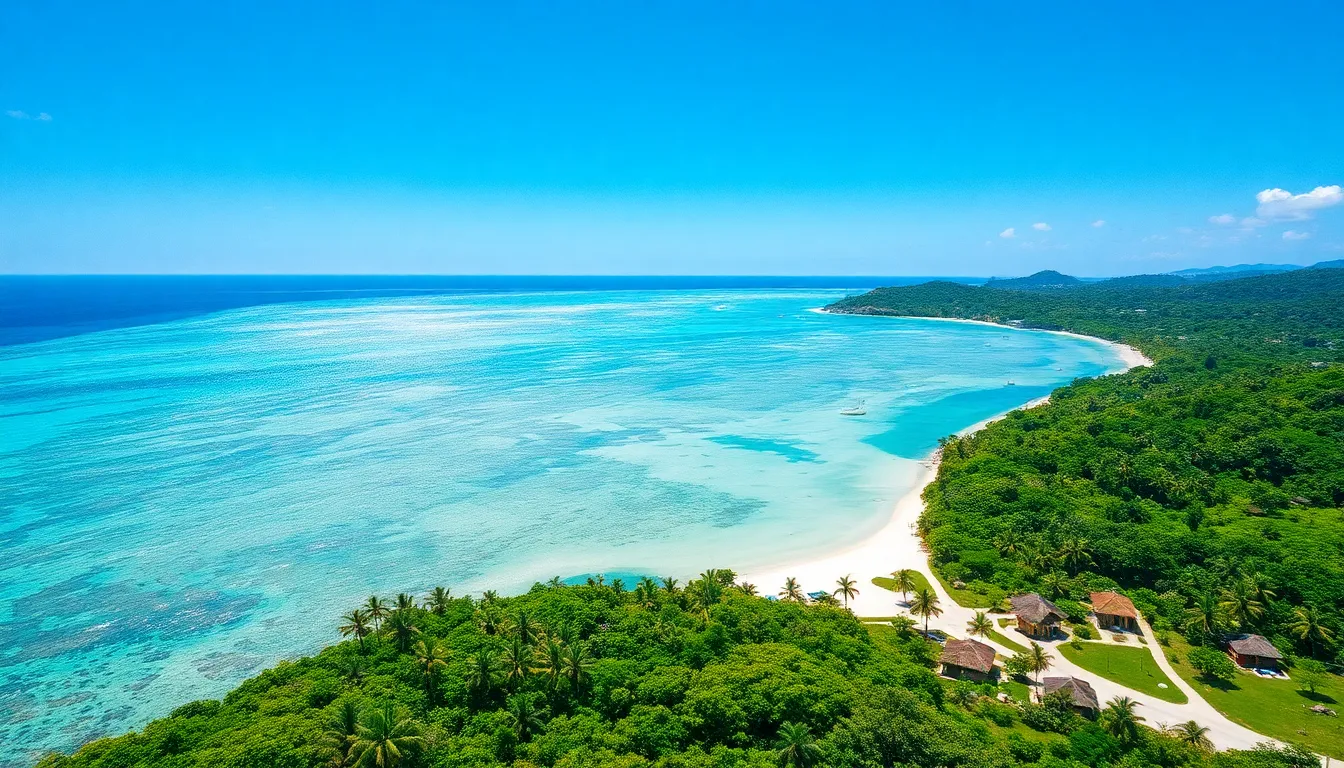Imagine waking up to the sound of waves crashing or the rustle of leaves in a forest instead of the blaring alarm clock. Nomadic life offers the thrill of adventure and the freedom to roam, making the world your backyard. It’s not just about packing your bags and hitting the road; it’s a lifestyle that challenges the conventional 9-to-5 grind and invites spontaneity into everyday life.
But let’s be real—it’s not all Instagram-worthy sunsets and picturesque hikes. There are days when Wi-Fi is as elusive as a unicorn and finding a decent cup of coffee feels like a quest. Yet, for those willing to embrace the chaos, nomadic life brings unparalleled experiences and a treasure trove of stories. So, if you’re ready to trade your desk for a hammock, join the ranks of the wanderers and discover what it truly means to live life on your own terms.
Table of Contents
ToggleUnderstanding Nomadic Life
Nomadic life embodies a lifestyle focused on mobility and exploration. This lifestyle offers those who choose it unique experiences away from conventional routines.
Definition and Characteristics
Nomadic life refers to a way of living characterized by constant movement. Individuals rove from place to place rather than establish a permanent residence. Characteristics include a flexible schedule, minimalistic living, and an appreciation for adventure. These individuals often prioritize experiences over possessions, leading to a dynamic approach to daily life. Freedom from a fixed job structure and the ability to adapt to various environments define this lifestyle. The unpredictability can be both exciting and daunting, requiring resilience and openness.
Types of Nomadic Lifestyles
Different types of nomadic lifestyles cater to various preferences. Digital nomads leverage technology to work remotely while traveling. Adventurers pursue outdoor activities across numerous landscapes. Full-time travelers explore various countries without a set destination. Cultural nomads immerse themselves in local cultures and communities, often engaging in volunteer opportunities. Each type offers distinct experiences and challenges, allowing individuals to tailor their journeys according to their interests and needs.
Historical Context of Nomadic Life

Nomadic living has deep historical roots, shaping human societies and cultures over millennia.
Early Nomadic Communities
Early nomadic communities consisted of small groups of people who moved frequently in search of food, water, and shelter. They followed animal migrations and seasonal vegetation cycles. These groups relied on hunting, gathering, and foraging as primary sustenance methods. Skills in resource management and environmental adaptation were essential for survival. Cooperation among community members fostered social bonds and cultural development. Artifacts from these societies reveal their complex social structures and belief systems. Cave paintings and tools illustrate a rich history of creativity and innovation tied to their nomadic existence.
Evolution Over Time
Nomadic lifestyles evolved significantly with technological and societal changes. The introduction of agriculture shifted some nomadic groups towards semi-sedentary lifestyles, blending farming with traditional ways. As trade routes developed, connections between nomadic and settled societies increased. Many nomads became integral in commerce, sharing goods and ideas across regions. The rise of empires often impacted nomadic communities, leading to cultural exchanges and conflicts. Urbanization further transformed these societies, yet many nomadic practices continue today, adapting to modern circumstances while preserving traditions. Current nomads navigate a landscape of globalization and technological advancements, showcasing resilience and adaptability.
Modern Nomadic Life
Modern nomadic life embodies flexibility and exploration in a rapidly changing world. Individuals embracing this lifestyle seek to escape the confines of traditional routines.
Digital Nomads
Digital nomads leverage technology to work remotely from anywhere on the globe. Many pursue careers in fields like programming, writing, and design, taking advantage of online platforms. They thrive on the ability to connect with coworkers and clients via video calls and collaborative tools. Communities of digital nomads often form in co-working spaces, where they share ideas and inspiration. Reliable internet access becomes essential for productivity, guiding them toward locations with strong connectivity and vibrant atmospheres.
Environmental and Cultural Factors
Environmental considerations significantly affect nomadic lifestyles. Access to nature and diverse climates often influences travel decisions. Cultural immersion enhances experiences, as many nomads seek authentic connections with local communities. Food, traditions, and social practices become integral to their journeys. Adaptability to different cultural norms proves essential, enabling individuals to navigate various social landscapes comfortably. Everyday interactions with locals enrich their understanding of the world and foster a sense of belonging.
Benefits of Nomadic Life
Nomadic life offers various benefits that attract individuals seeking adventure and new experiences. With its unique traits, this lifestyle enhances personal and professional fulfillment.
Flexibility and Freedom
Flexibility characterizes the nomadic lifestyle, allowing people to choose their own schedules. Freedom invites spontaneous travel and exploration, enabling individuals to adapt plans according to their interests. Remote work facilitates this flexibility, granting the ability to work from anywhere with internet access. Various locations can serve as temporary homes, creating a sense of novelty and excitement. Digital tools support seamless transitions, ensuring productivity remains high regardless of surroundings. This adaptability provides a refreshing contrast to traditional work environments.
Cultural Exchange and Experiences
Cultural exchange enriches the nomadic experience, fostering meaningful connections with diverse communities. Interacting with locals opens doors to unique traditions and customs. Each new destination offers opportunities for immersive learning, expanding perspectives on life and society. Engaging in local events enhances understanding and appreciation for different cultures. Experiences like trying regional cuisine or participating in cultural festivals create lasting memories. Furthermore, nomads contribute to the local economy, supporting businesses and artisans. This reciprocal relationship nurtures a shared sense of community and strengthens global connections.
Challenges of Nomadic Life
Nomadic life presents various challenges that individuals must navigate.
Sustainability Issues
Sustainability poses a significant concern for nomads. Many travelers contribute to environmental stress through increased carbon footprints from frequent travel. Food sourcing also becomes an issue, as individuals often rely on local resources that may not be sustainable. Furthermore, waste management in diverse locations can complicate eco-friendly practices. Unregulated tourism in popular destinations overburdens local ecosystems. Seeking sustainable accommodation and minimizing resource consumption becomes crucial in offsetting these impacts. Prioritizing eco-conscious choices can help mitigate the negative effects of this lifestyle on the environment.
Social and Emotional Impacts
Social isolation frequently affects those living a nomadic life. Constant movement can hinder the formation of lasting relationships with friends and family. Emotional challenges arise from the lack of a stable community or support system. Many individuals experience loneliness despite connecting with fellow travelers. Navigating different cultures often requires adjusting to new social norms, which can be overwhelming. Engaging in local activities and fostering short-term connections may alleviate these feelings, as they encourage a sense of belonging. Addressing these emotional impacts is essential to maintaining overall well-being while embracing the nomadic lifestyle.
Nomadic life offers a unique blend of freedom and adventure that continues to attract many. It’s a lifestyle that encourages individuals to break free from conventional routines and embrace spontaneity. While the journey is filled with enriching experiences and cultural exchanges, it also presents challenges that require careful navigation.
By prioritizing sustainability and fostering connections within local communities, nomads can enhance their experiences and contribute positively to the places they visit. Ultimately, the nomadic lifestyle is about finding balance between exploration and responsibility, creating a fulfilling journey that resonates with the spirit of adventure.



